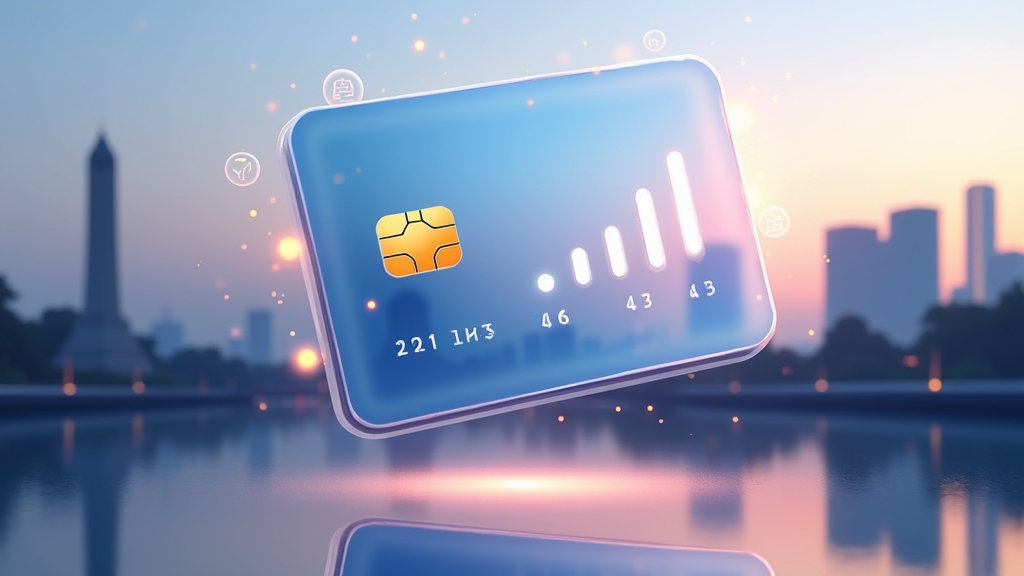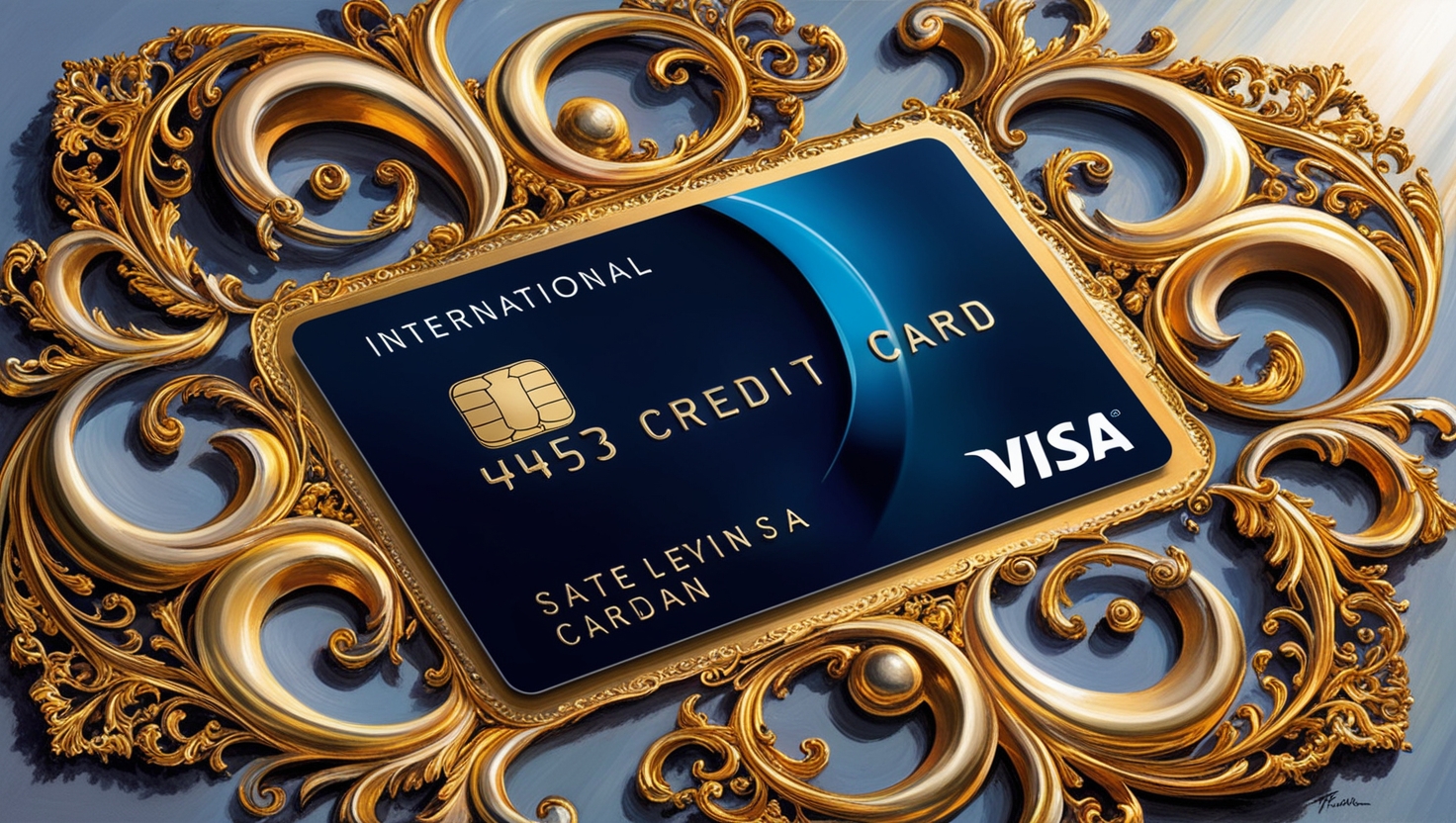If you've ever found yourself in a situation where you needed a credit card If you've applied quickly but have been denied due to a lack of a transcript or proven income, you know how frustrating it can be. Fortunately, there are options on the market aimed precisely at those looking for ease of approval. But what exactly makes a card more accessible? And how do you choose the best option for your profile?
Easy-to-approve cards are generally offered by financial institutions with less stringent criteria, such as digital banks or fintechs. They can be a great gateway for those who are building or rebuilding their Serasa score. However, it's important to understand that, in many cases, these cards come with lower limits and slightly higher fees.
For example, an 18-year-old who has never had an credit card may encounter difficulties when applying for a traditional product. A card such as Nubank or C6 Bank can be a viable alternative, as they usually analyze data other than the credit score.
But beware: easy approval does not mean no responsibility. Before applying for any offer, it is essential to assess your financial circumstances. After all, a misused card can become a headache. Have you ever thought about whether you really need a credit card now?
How Analysis Works for Easy Approval Cards
Have you ever wondered why some cards are approved almost instantly, while others require lengthy analysis? The answer lies in the criteria used by the institutions. Traditional banks usually require proof of a stable income, an impeccable credit history and even a previous relationship. Fintechs and digital banks, on the other hand, use technology to cross-check alternative data.
A practical example: if you have an account with a digital bank and move your money frequently, the institution itself may offer a credit card pre-approved, with no need for bureaucracy. This is because they already have access to your financial behavior. Platforms such as Inter It is Next usually work that way.
Another factor that makes approval easier is the so-called "secured card". In this model, you deposit an amount that serves as a limit. If you don't pay the bill, the bank uses the guaranteed money. It's an interesting option for those who are starting out or want to recover their credit. But is it worth it? It depends on your objective.
It's worth remembering that even easy-to-approve cards can be consulted by Serasa and Bacen. These queries, called "soft pull", don't affect your score, but help the institution make a decision. So if you've had problems in the past, don't be alarmed: some companies are willing to give you a second chance.
What Are the Best Options on the Market?
With so many options available, how do you choose the best credit card easy to approve? The answer varies according to your needs. If you're looking for a card with no annual fee, the Itaú has the Sim Card, which can be a good alternative. If you prefer a card with benefits, the Santander Free offers a points program free of charge.
For those starting out, the Original and PicPay are popular options. They don't require a minimum income and the application process is 100% online. But beware: some of these cards may have low initial limits, around R$ 300 to R$ 500. Does this meet your needs?
Another category worth mentioning is store cards, such as Riachuelo or Casas Bahia. They are usually easier to obtain and can be useful for specific purchases. However, interest rates are often high. It's worth analyzing whether the benefit is worth the cost.
If you have a more conservative profile and prefer a card from a well-established bank, the Federal Savings Bank offers the Easy Credit Card, aimed at those receiving social benefits. Approval is simplified, but may require more documentation. Which of these options best suits your day-to-day life?
Advantages and Disadvantages of Easy Approval Cards
Like any financial product, easy approval cards have pros and cons. Among the advantages is the possibility of building up a credit history. If used correctly, this can open doors to better opportunities in the future. In addition, many of these cards do not charge an annual fee, which is great for those looking to save money.
On the other hand, the limits are often low, which can limit your purchasing capacity. Another negative point is the interest rates, which can reach over 300% per year in extreme cases. Just imagine: if you delay a payment, the debt can grow rapidly. Are you prepared to deal with that?
Some cards also have reduced benefits compared to traditional ones. Cashback programs, miles or discounts with partners may be limited or non-existent. If you are looking for a credit card with advantages, you may have to wait until your score improves.
Finally, there is the risk of falling for misleading offers. Some companies promise guaranteed approval, but charge hidden fees or sell your data. Always check the institution's reputation before signing up. Have you done any research into the company offering the card?
How to Apply and Increase Your Chances of Approval

Now that you know the options, how do you apply for a credit card easy to pass? The first step is to choose the right institution. Digital banks tend to have more agile processes, often resolved in a few minutes via the app. Traditional banks, on the other hand, may require a visit to a branch.
Before applying, organize your documents. Generally, you'll need your ID, CPF, proof of residence and, in some cases, a payslip or bank statement. If you are an MEI or self-employed, you may need to submit an income tax return. The more complete your application, the greater your chances of approval.
Another valuable tip is to keep your name clean. Even easy-to-approve cards can deny your application if there are serious restrictions on your CPF. Check your Serasa and settle any outstanding debts before applying. Did you know that even small debts can have an impact on your approval?
Finally, avoid making multiple requests in a short period of time. Each query to Serasa can temporarily reduce your score. If you are denied, wait a few months before trying again. In the meantime, use other tools, such as a debit card or PIX, to keep your finances in order.
Tips for Using Credit Cards Responsibly
Having a credit card in hand is a great responsibility. If used correctly, it can be an ally. If not, it can turn into a snowball of debt. The first rule is simple: only spend what you can afford. It sounds obvious, but many people get lost in the temptation of the available limit.
A good practice is to set a monthly budget for the card. For example, if your limit is R$ 1,000, commit to spending a maximum of R$ 500. That way, you avoid surprises on the bill. Another strategy is to pay in full before the due date, avoiding interest. Have you tried controlling your spending with a finance app?
Also pay attention to the due dates. A late payment can result in very high fines and interest. If possible, set up automatic payment to debit your account. Many banks, such as Bradescooffer this function free of charge.
Finally, avoid making unnecessary purchases in installments. That 10x interest-free promotion may seem tempting, but if you accumulate too many installments, your budget could be compromised. Before you buy, ask yourself: "Do I really need this now?"
Alternatives for those who have not been approved for a credit card
And if, even after trying several options, you still haven't managed to get one credit card? Don't despair. There are alternatives that can meet your needs. One of them is a prepaid card, such as the RecargaPay or Méliuz. It works like a regular card, but you need to top it up before you can use it.
Another option is peer-to-peer (P2P) lending, available on platforms such as Lend me. Here, you borrow money directly from other users, without banking intermediaries. The rates may be fairer, but you have to be careful not to get into debt.
If the problem is a lack of history, consider starting with a store card or a credit card. Stores like American It is Magazine Luiza offer credit with less stringent criteria. But remember: the rates are often high, so use them sparingly.
Finally, if you're looking for credit for emergencies, it might be worth building up a financial reserve first. Applications such as GuiaBolso help control spending and save. After all, not relying on credit can be the best long-term solution. Have you thought about it?
Conclusion: Is it worth having an Easy Approval Card?
After exploring all the possibilities, the question that remains is: is it really worth having a credit card easy to approve? The answer depends on your context. If you need to start building your track record or have an urgent need for a payment method, yes, it could be a good choice.
However, if you already have other credit options or can wait until you improve your score, it might be better to avoid it. Remember that easy credit should not be seen as a magic solution, but rather as a tool that requires responsibility.
The most important thing is to always read the contract carefully, compare rates and understand all the conditions before signing. After all, a poorly chosen card can cause more problems than solutions. Are you ready to make this decision with confidence?
If you still have doubts, consult a financial expert or research reliable sources such as the Central Bank. Knowledge is the best tool to avoid financial pitfalls. Good luck on your journey towards conscious credit!


